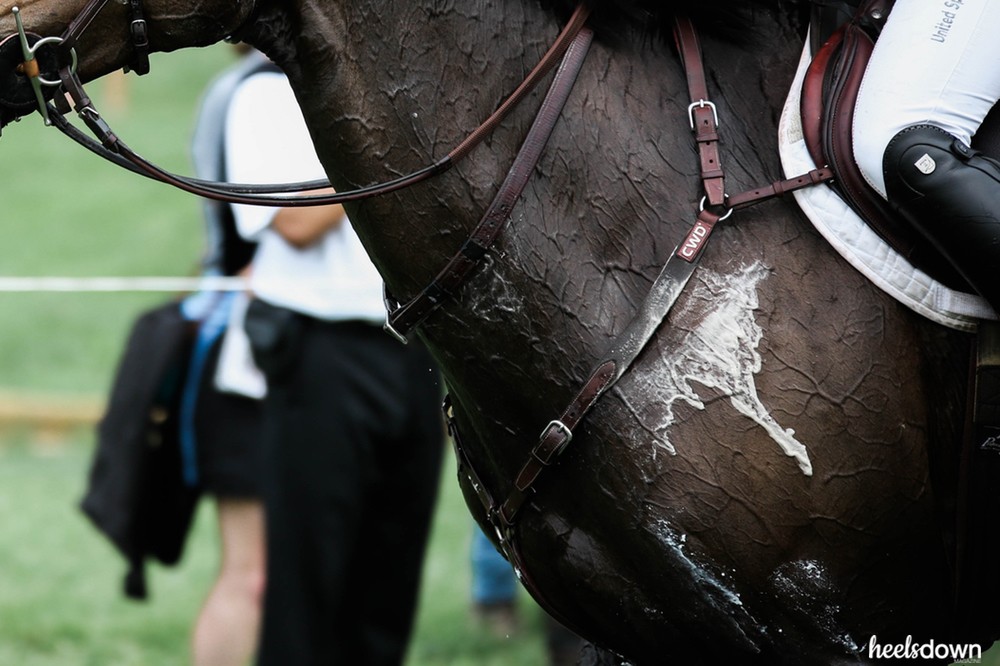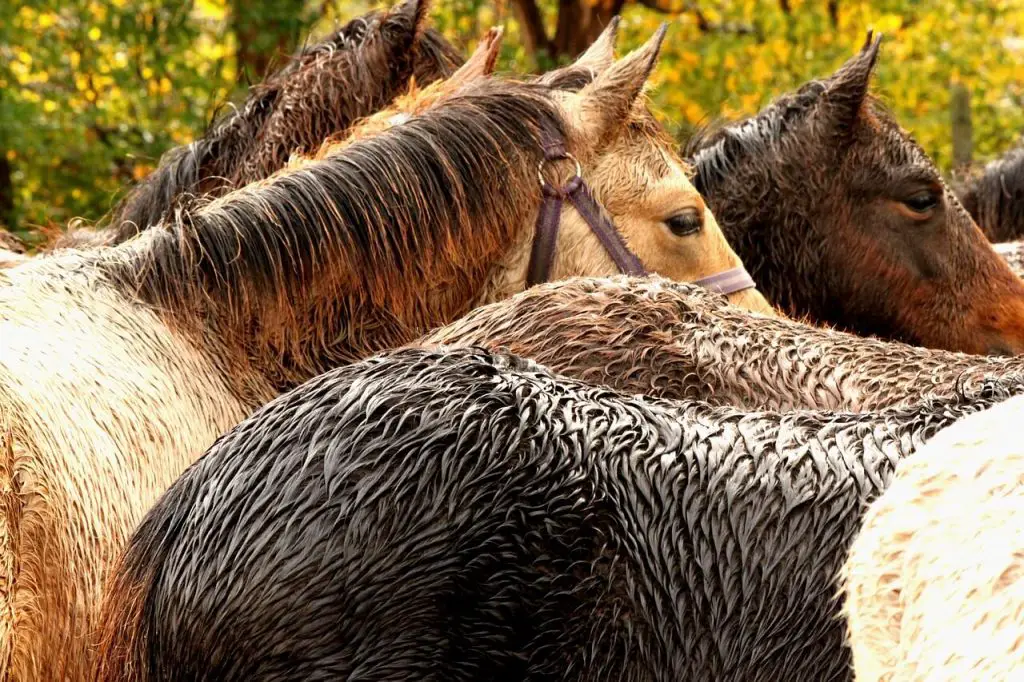Horses sweat to regulate their body temperature. Sweating is one of the primary methods that horses use to cool down. The evaporation of sweat from the horse’s skin helps to dissipate heat and keep its internal temperature within a normal range.
Horses have an extensive network of blood vessels in their skin, which allows them to absorb and radiate more heat than other mammals. When horses are active or exposed to extreme temperatures, they will start sweating as a way to reduce their body heat more quickly. As well as helping with cooling, sweating also helps rid the body of toxins and waste products that can build up during exercise or times of stress.
Horses sweat to cool down the same way humans do. Sweating helps horses regulate their body temperature and keep them comfortable in hot or humid climates. In addition, sweating is an important part of a horse’s natural defense system; when they perspire, it acts as a barrier against infection and disease-causing organisms that may be present on their skin.
Why is Horse Sweat White
Horse sweat is white due to the presence of proteins and electrolytes that are secreted through their sweat glands. Horses have more sweat glands than humans, which allows them to cool off more efficiently in hot temperatures. The salt content in horse sweat helps replenish lost electrolytes, enabling them to exercise for longer periods without becoming fatigued.
Additionally, the white color of horse sweat is caused by minerals such as zinc, magnesium and calcium salts contained in it.

Credit: heelsdownmag.com
Why Do Horses Sweat And Not Dogs?
Sweating is an important process for both humans and animals alike. It helps keep the body cool when it gets too hot, but not all animals have this same ability to sweat. Horses are known for their sweating abilities, while dogs on the other hand do not typically sweat in a similar manner.
The reason why horses can sweat and dogs cannot has to do with how each animal regulates its internal body temperature.Horses produce large amounts of sweat because they have evolved over time to be able to dissipate heat more effectively than other mammals through their skin and coat. They possess two types of glands that allow them to secrete moisture onto their coats – eccrine glands which cover the majority of their bodies, and apocrine glands located around the head, neck, legs and tail regions – allowing them greater control over cooling themselves down when needed.
Dogs on the other hand rely primarily on panting as a way of regulating their body temperatures which happens by evaporation from saliva-coated hairs inside their mouths as well as air flow across these moist surfaces . This method is less effective at cooling compared to sweating since it does not involve direct contact with evaporative water loss from fur or skin like horses do; instead relying solely on moving air currents for cooling off purposes.
Why is My Horse Sweating When Its Not Hot?
Horses sweat for a variety of reasons, and it is not always because of heat. While horses are built to be able to regulate their temperature in hot environments, they can still overheat if the conditions become too extreme or the horse is doing an exceptionally strenuous activity. But oftentimes, horses will sweat when they’re not hot due to medical issues, stress and anxiety, or simply being worked beyond their capacity.
Medical issues such as infection, laminitis (an inflammation of the laminae), colic (intestinal pain) and colds can cause sweating even in cooler temperatures. Stress-related sweating often occurs during times when a horse feels threatened or afraid; this could be from fear of other animals or people present in its environment. Finally, although uncommon compared to medical issues and stress-induced sweating, some horses may just be pushed too hard while riding which causes them to perspire even when it’s cool outside.
If you think your horse may be sweating excessively no matter what time of year it is – get them checked out by your vet!
What to Do If Your Horse is Sweaty?
If your horse is sweating, it’s important to take the appropriate steps to ensure that they stay safe and healthy. First, if you’re riding your horse when you notice them getting sweaty, stop as soon as possible and give them a break. Make sure you cool them down with water or wet towels by rubbing their legs and body down.
You should also look for signs of dehydration such as sunken eyes or dry gums. If these are present, it’s important to provide electrolytes either in their feed or through an oral supplement like apple juice mixed with salt and sugar. Additionally, make sure your horse has plenty of access to fresh clean water at all times; this will help keep them hydrated even during exercise.
Lastly, be mindful of how much rest and turnout time your horse gets each day – too much work without enough rest can lead to exhaustion and further sweating episodes.
What is Special About Horse Sweat?
Horse sweat is a truly special thing. Its composition and properties make it an invaluable asset in equine care, as well as providing some unique benefits to the rider. Horse sweat is made up of electrolytes, proteins, minerals and vitamins that aid in muscle recovery.
It also contains natural elements such as lactic acid which can act as an anti-inflammatory agent – helping reduce inflammation caused by exercise or competition. On top of this, horse sweat helps to regulate body temperature during strenuous riding sessions or competitions; its high salt content plays a key role here. Moreover, horse sweat has antifungal qualities; the combination of salts and acids help cleanse the skin and prevent any fungal infections from forming on the animal’s coat or saddle area.
So not only does it have therapeutic benefits for horses but riders too! Ultimately, horse sweat serves many purposes for both animals and humans alike – making it truly one of nature’s most remarkable gifts!
Horse sweat fun facts #shorts
Conclusion
The sweat response in horses is an important part of their physiology and helps them regulate their body temperature. Sweating is also a way for horses to cool down quickly after strenuous activity or exercise, which can help them recover faster. Knowing the signs of excessive sweating and understanding how to properly care for your horse’s coat are essential skills that all horse owners should have.
With proper care and attention, you can ensure that your horse stays healthy and comfortable throughout its life.






